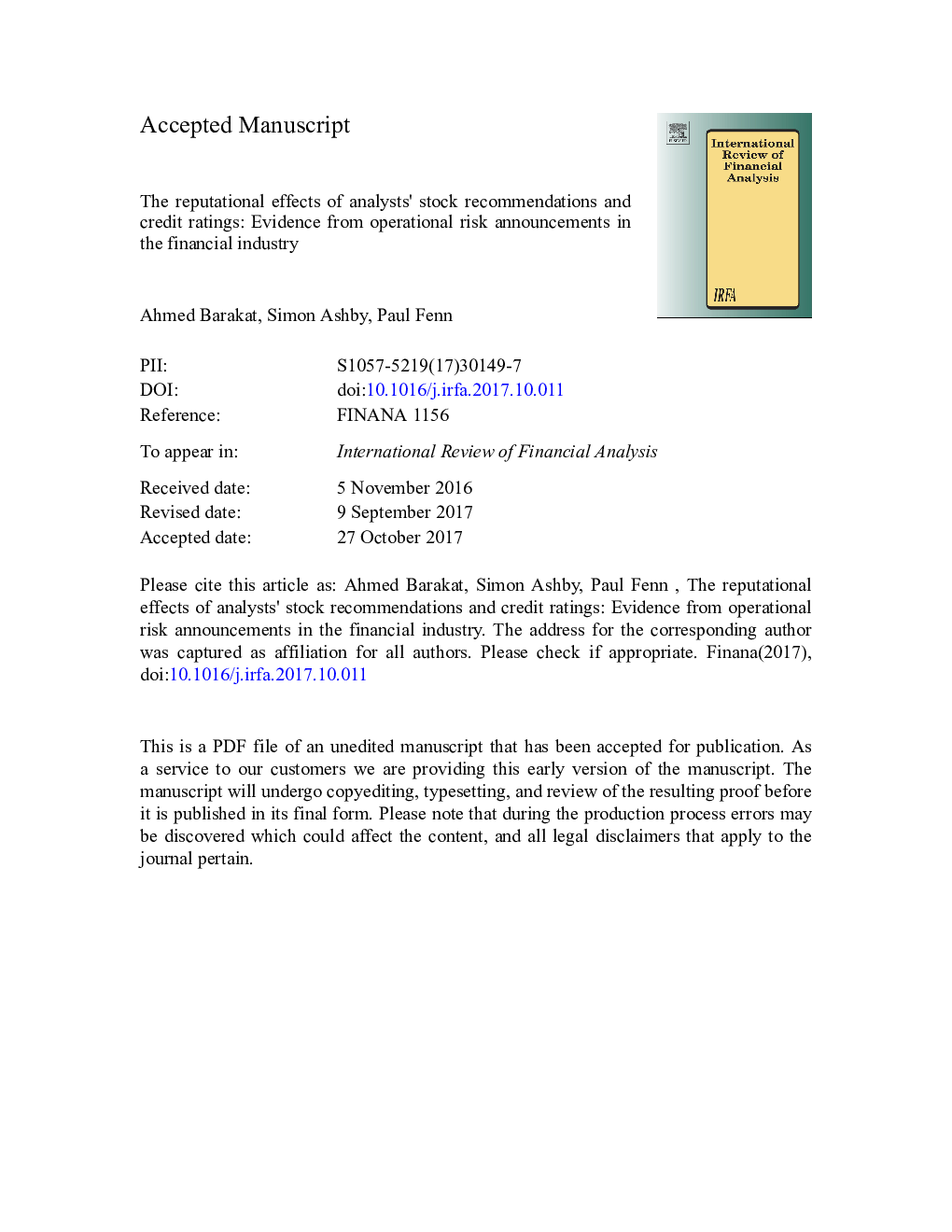| Article ID | Journal | Published Year | Pages | File Type |
|---|---|---|---|---|
| 7355721 | International Review of Financial Analysis | 2018 | 57 Pages |
Abstract
This paper investigates whether more favorable stock recommendations and higher credit ratings serve as a reputational asset or reputational liability around reputation-damaging events. Analyzing the reputational effects of operational risk announcements incurred by financial institutions, we find that firms with a “Buy” stock recommendation or “Speculative Grade” credit rating are more likely to incur an equity-based reputational damage. In addition, firms with lower credit ratings incur a much more severe debt-based reputational damage. Moreover, credit ratings are more instrumental in mitigating the debt-based reputational damage caused by fraud incidents or incurred in non-banking activities. Furthermore, the misconduct of senior management could demolish the reputation of firms with less heterogeneous stock recommendations. Finally, credit ratings serve as an equity-based reputational asset in the short term but turn into an equity-based reputational liability in the long term. Overall, our analysis reveals that stock recommendations represent a reputational burden and credit ratings act as a reputational shield; however, the persistence and magnitude of such reputational effects are moderated by time and event characteristics.
Keywords
Related Topics
Social Sciences and Humanities
Economics, Econometrics and Finance
Economics and Econometrics
Authors
Ahmed Barakat, Simon Ashby, Paul Fenn,
